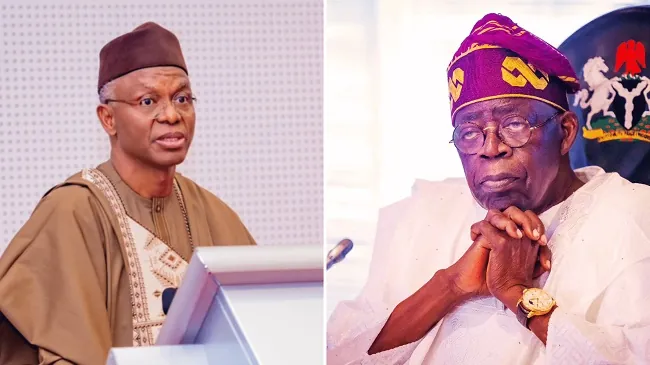
Raphael Kanu
The Presidency has strongly denied suggestions that President Bola Ahmed Tinubu harbours plans to extend his stay in office beyond constitutional limits, describing the claims by former Kaduna State Governor, Nasir El-Rufai, as “baseless and absurd.”
El-Rufai, in a recent statement, alleged that the Tinubu administration was centralising power and warned that the President might attempt to become Nigeria’s “Paul Biya” — a reference to the Cameroonian leader who has ruled since 1982. The former governor urged former Vice President Atiku Abubakar and other opposition leaders to rally Nigerians against what he termed a looming authoritarian drift.
“If we don’t come together and end this Tinubu administration by 2027, Tinubu will try to be our Paul Biya, to be president for life. All the signs are there,” El-Rufai declared.
Responding on Sunday, presidential spokesperson Bayo Onanuga dismissed the remarks as speculative and politically motivated. According to him, President Tinubu’s popularity remains intact, particularly in the North, pointing to the rousing reception the President received during his visit to Kaduna last Friday.
“It is increasingly evident that El-Rufai has recognised the futility of attempts by his associates in his new party to prevent President Tinubu’s likely re-election in 2027. This plot is proving unattainable, a mission doomed to fail. El-Rufai has now resorted to spreading unfounded stories, including the claim that Tinubu intends to become a ‘life president.’ Nothing could be farther from the truth,” Onanuga said.
He stressed that President Tinubu, who has been involved in Nigeria’s democratic struggles for decades, remains committed to respecting constitutional limits. “President Tinubu is a democrat who does not intend to stay in office beyond May 28, 2031, when re-elected in 2027,” he insisted.
The Presidency further suggested that El-Rufai may be engaging in political brinkmanship, urging his successor in Kaduna State, Governor Uba Sani, to reach out to him. Onanuga added that El-Rufai “could benefit from some professional counselling to steer him away from his recent hallucinations and political fabrications.”
El-Rufai’s remarks revive memories of Nigeria’s history with tenure elongation controversies. In the mid-2000s, former President Olusegun Obasanjo was accused of attempting to secure a third term through constitutional amendments, a move that was widely resisted and eventually collapsed in the National Assembly. Since then, suspicion of leaders seeking to overstay their constitutional limits has remained a recurring feature of Nigeria’s political discourse.
Political analysts note that El-Rufai’s warning reflects deepening fissures within the ruling All Progressives Congress, where internal rivalries are already shaping ahead of the 2027 elections. The former governor, once a close ally of President Tinubu, has become an increasingly vocal critic since leaving office in May 2023.
His comments and the Presidency’s sharp rebuttal have also ignited a storm of debate across social media. On X (formerly Twitter), hashtags such as #Tinubu2031 and #ElRufaiWarning trended through Sunday night, drawing thousands of reactions. Supporters of the former Kaduna governor argued that his warning echoed long-standing fears of power consolidation, while others dismissed the claims as political theatre.
With the 2027 elections less than two years away, the political temperature is rising. El-Rufai’s remarks signal a likely intensification of opposition rhetoric, while the Presidency’s firm rebuttal underscores its determination to defend Tinubu’s democratic credentials. For now, the official position remains clear: President Tinubu will not seek to extend his stay in office beyond the constitutional maximum of two terms, ending in May 2031 if re-elected.
